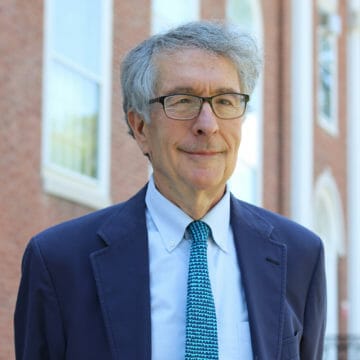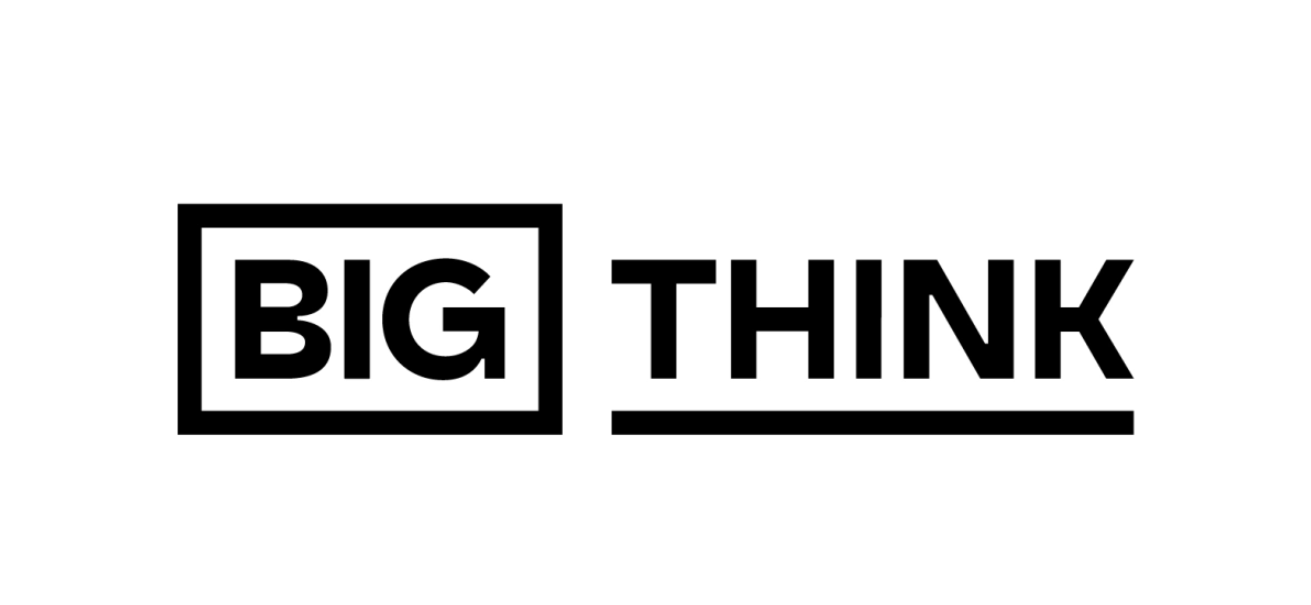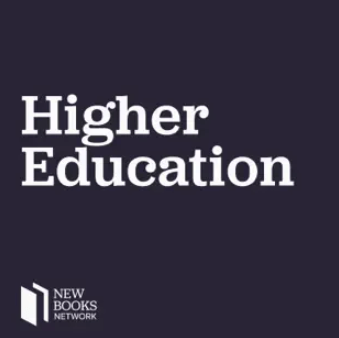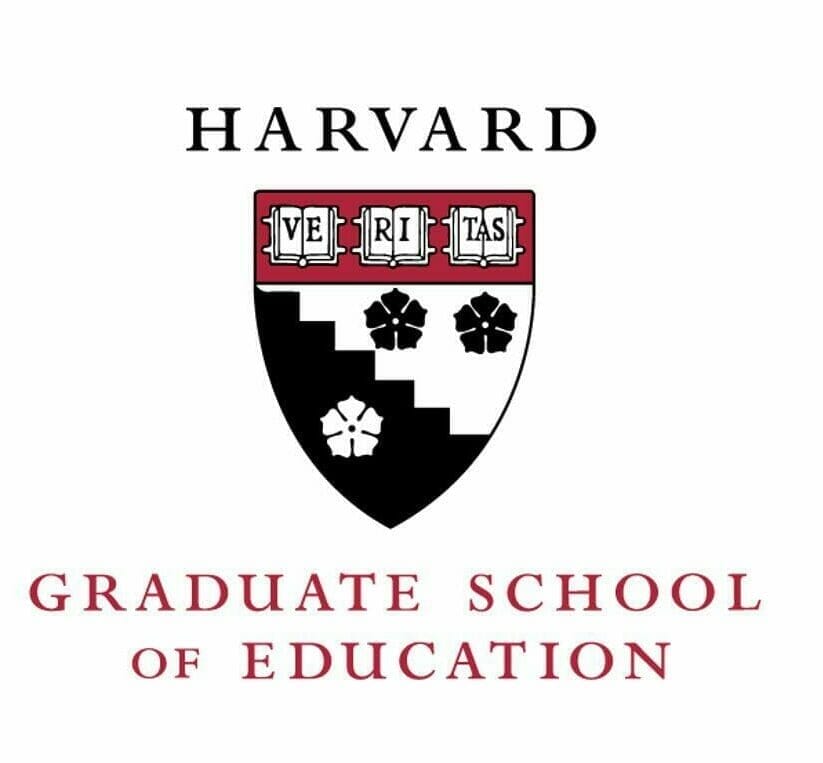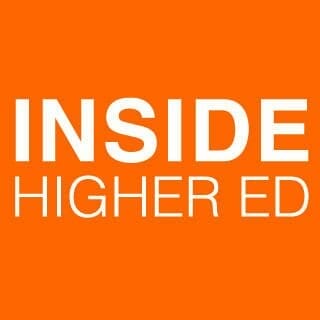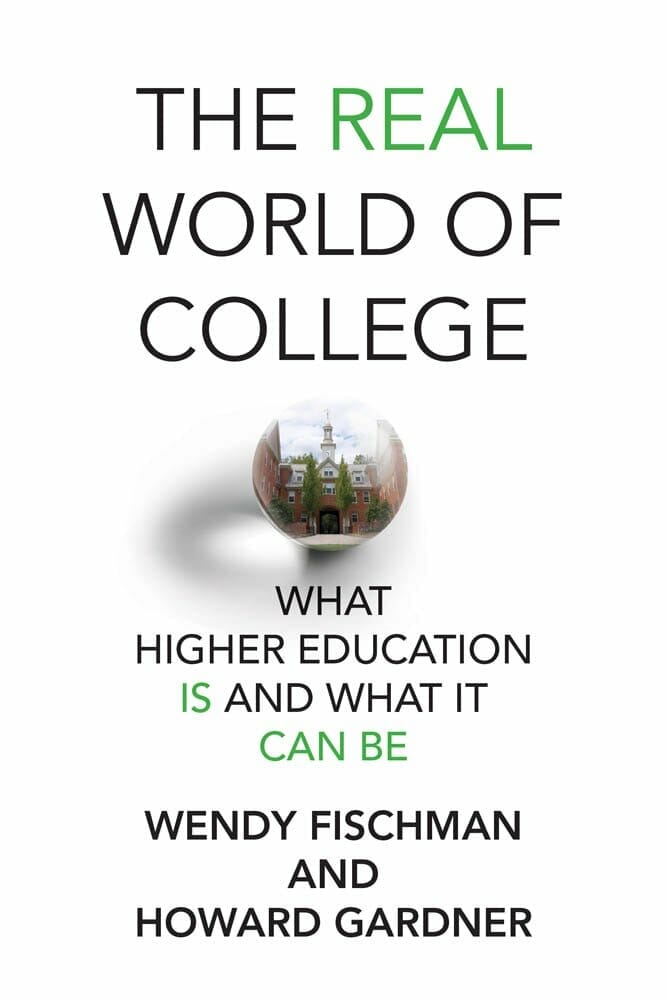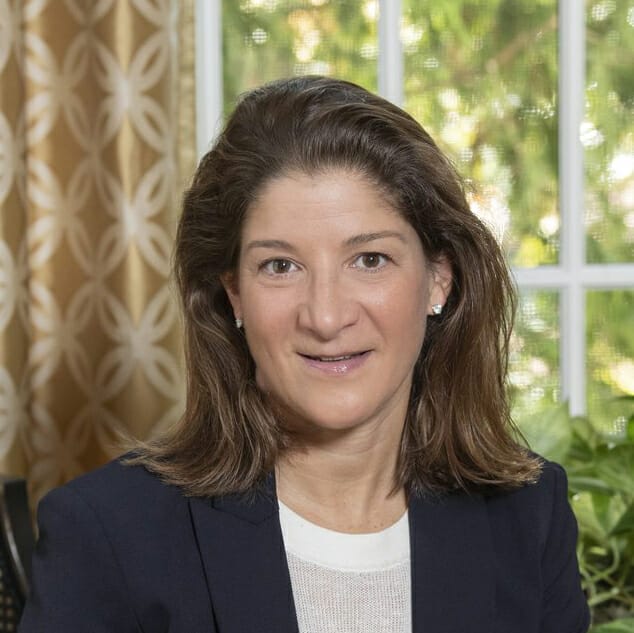Videos
Learn More About Howard Gardner
What does it mean to be a smart person in a time when artificial intelligence (AI) tools are moving closer to becoming as skilled as humans – or even better than us – at learning and processing information?
Howard Gardner, the esteemed Harvard Graduate School of Education professor renowned for his groundbreaking and foundational theory of Multiple Intelligences, proposes that forward-thinking leaders need a roadmap to navigate the coming reality of human-AI collaboration.
“What it meant to be smart was constant until the 21st century,” says Gardner, “No one, except for science fiction writers, anticipated large language models that would rapidly exceed human beings by most definitions of intellect. The choice we’re faced with now is stark – let the large language models run the world, shut them off completely, or try to work synergistically and effectively with them.”
Gardner is currently focused on the human capacity to synthesize: to take in huge amounts of information, organize and re-organize it, so as to provide insight and solutions to complex problems and issues. He probes how best to train this capacity in schools and at the workplace, and then intertwine it with the synthesizing capacities (and possible biases) of powerful computational systems.
A truly once-in-a-generation thinker who recently topped the 2024 RHSU Edu-Scholar Public Influence Rankings as the most impactful US scholar to shape educational practice and policy in the last year, Gardner’s unique perspective on synthesizing capacities is deeply practical for organizations interested in tapping into their workforce’s full capabilities. As he explains in his presentations, organizations and universities can adapt to the age of AI and prepare for the future of work and schooling by partnering with technology. This synergy provides a path for nurturing our human synthesis abilities for improved innovation and growth.
Recognized as one of the most influential public intellectuals in the world by Foreign Policy and Prospect magazines, Gardner’s insights guide organizations in rethinking education, work and communication strategies, and prepare them to thrive in a future where human-AI partnerships are crucial to success.
From Multiple Intelligences to Synthesizing Intelligence
Having originated the idea that intelligence is multifaceted, Gardner’s recent research significantly advances our understanding of how we can enhance human capabilities in a technologically saturated era. Noting that human psychology remains constant no matter how tools change, he explains that modern education should focus on what it means to be a human being, historically and even prehistorically, to provide a foundation when moving into the future of work. When leaders understand that what it means to be human may ultimately change – both because of what we’ve done to the climate and what we’ve invented in computational systems and in genetic experimentation – they are better equipped to innovate and grow in our new era.
Central to Gardner’s current exploration is the process of synthesis — how individuals can integrate information from myriad sources, apply it innovatively, and adapt it based on feedback. This process, deeply influenced by one’s intelligences, becomes pivotal in creating solutions that are not only innovative but also ethical and human-centric. Notably, because we each have our own profile of intelligences, both our motivations for synthesizing, and the way in which we go about this process, are distinctive.
In a recent conversation with Steven Pinker, Gardner reflected on a storied career that has consistently pushed the boundaries of how we perceive intelligence and learning. This dialogue underscored Gardner’s unparalleled ability to engage deeply on pivotal topics, showcasing why encounters with him through Q&A sessions or fireside chats are uniquely enriching experiences. His preference for dynamic, interactive formats — be it through public conversations or more intimate discussions — emphasizes his belief in the power of discourse to foster understanding and innovation.
As AI tools become more prevalent at work and in life, Gardner emphasizes that leaders have a unique opportunity to shape the future of work through how they leverage these partnerships.
“No one has come up with a successful synthesis of human and AI yet,” he concludes, “And no one yet knows what it will be like going forward.”
Dr. Howard Gardner is a Research Professor at the Harvard Graduate School of Education. He has authored several hundred articles and over 30 books, including “Leading Minds” (2011), “Five Minds for the Future” (2009), “Changing Minds” (2006), “The Disciplined Mind” (2000) and “The App Generation: How Today’s Youth Navigate Identity, Intimacy, and Imagination in a Digital World” (2013). His intellectual memoir, “A Synthesizing Mind” was published in 2020. In 2024, Teachers College Press is publishing “The Essential Howard Gardner on Education” and “The Essential Howard Gardner on Mind.”
Repeatedly recognized as one of the 100 most influential public intellectuals in the world by Foreign Policy and Prospect magazines, Professor Gardner has earned numerous honors, including a MacArthur Prize Fellowship and John S. Guggenheim Memorial Foundation Fellowship, the Prince of Asturias Award for Social Sciences, and he was the first American to receive the University of Louisville’s Grawemeyer Award in Education. He has also been named to the American Management Association’s Top 30 Leaders in Business. Professor Gardner was the recipient of the 2020 Distinguished Contributions to Research in Education Award from the American Educational Research Association. He has received honorary degrees from 31 colleges and universities, including institutions in Bulgaria, Canada, Chile, Greece, Ireland, Israel, Italy, South Korea and Spain. Professor Gardner has also been elected a member of the American Academy of Arts and Sciences, the American Philosophical Society, the National Academy of Education and the London-based Royal Society for the Encouragement of Arts, Manufactures and Commerce. He has served on a number of boards, including that of New York’s Museum of Modern Art.
For more than two decades, Professor Gardner has co-directed the GoodWork Project, now a component of the broader Good Project, a large-scale, non-profit effort to identify and study individuals and institutions whose high social and ethical standards of excellence serve as a model for good work. More recently, he has conducted reflection sessions designed to enhance the understanding and incidence of good work among young people, and is also investigating the ethical dimensions of new digital media.
Professor Gardner’s other research efforts include a major study of liberal arts and sciences in the 21st century, culminating in his 2022 book with Wendy Fischman, “The Real World of College” (MIT Press).
Howard Gardner (and select colleagues) are available to advise your organization via virtual and in-person consulting meetings, interactive workshops and customized keynotes through the exclusive representation of Stern Speakers & Advisors, a division of Stern Strategy Group®.
Headshot Photo Credit: Harvard Graduate School of Education
Synthesis Thinking: What It Is, Why It Is Important and How To Nurture and Use It
Why is it that some people are able to take information from various sources and combine them to come up with new ideas – and can this skill be learned? Harvard Graduate School of Education Professor Howard Gardner, the pioneering mind behind the theory of multiple intelligences, offers a groundbreaking perspective on synthesizing disparate forms of knowledge to innovate and thrive, even as technology is rapidly advancing. Engaging, optimistic and uplifting, Gardner’s insights into human capabilities and synthesis present a solution for leaders aiming to leverage the full potential of their workforce in the age of AI. One of the world’s most influential thinkers, Gardner first explains the internal processes synthesizers use to bring information together, then reveals to leaders how they can foster an environment where innovation flourishes through the integration of diverse intelligences and technology. Participants will leave equipped with strategies to cultivate a synthesizing mindset which is essential for leading in an era when collaboration between human intelligence and artificial intelligence will define success.
Innovation and Creativity: Leveraging the Best of the Human Mind
Increasingly, our world is being driven by digitally synthesized information (data) that dictates how we think, learn, consume, work and live. While algorithms, AI and robots help improve efficiency, Howard Gardner’s research confirms the human mind is the key driver of innovation, creativity and progress. Drawing on discoveries shared in his mesmerizing new book “A Synthesizing Mind: A Memoir from the Creator of the Multiple Intelligences Theory” (2020) and decades of related research, this presentation offers people at all levels of an organization a rare opportunity to learn lessons about how to value, retain and expand on the capabilities of their own mind to enhance how they work, learn, teach, create and innovate. Gardner’s message is clear: the power of machine thinking comes in second to that of the human mind, and he shows participants why this is so and how to leverage their own brilliance.
Instructional Leadership: Teaching the Human Mind to Synthesize
We are all inundated with information every day, which makes it easier, but not wiser, to relegate decisions to other entities – including powerful algorithms and deep learning. But the human capacity to synthesize is valuable, says Professor Howard Gardner, and it should not be assigned to a non-human intelligence. Rather, we should try to understand what synthesizing is and how to cultivate that ability in the workplace and at school. Psychology has thus far dropped the ball on understanding synthesis, probably because it can’t be easily simulated in an experiment or probed in short answer tests. Gardner encourages leaders and educators to explicitly recognize the synthesizing mind and consider the steps needed to cultivate it. During this presentation, he helps participants examine what they are doing when it comes to processing information and making decisions and shows them how they can do it differently, and perhaps better.
The Future of Skilled Work: Professions Under Fire
For centuries, the world has depended on professions and professionals—ranging from doctors, lawyers and accountants, to teachers, social workers and architects. High-level professional work is more important than ever. Yet the traditional professions, says Dr. Howard Gardner, are under enormous pressures. Among the disrupting factors are the tendency to label everything a profession; the likelihood that many, if not most, tasks traditionally carried out by professionals can now be carried out by intelligent machines; and the copious examples of unprofessional behavior by licensed professionals.
Based on two decades of research, Gardner discusses each of these threats to professionalism and the future of work, how they should be responded to by leaders at all levels of an organization, and what it means to behave professionally and trustworthily in a post-professional world.
Beyond Wit and Grit: Rethinking the Keys to Success
What makes people successful? The common-sense answer is “wit” (how smart you are) and “grit” (how hard you work). But the story is not so simple, says Dr. Howard Gardner. First, research on human cognition makes it clear that we have not one but many intelligences and ways of being “smart,” and so our concept of wit needs to be pluralized – “wits.” Second, while successful people do work hard in order to persevere, hard work can also be put to evil purposes; for example, Hitler’s army had plenty of grit. Therefore, we need to qualify grit as “good grit” that is marshaled toward positive ends for others and for society. In this presentation, Gardner describes an education framework that makes positive use of our wits and our good grit, and provides concrete suggestions about how to move toward a society that is both wise and caring.
The Good Project: Investigating and Implementing Excellence, Ethics, and Engagement
For over twenty years, Dr. Howard Gardner and his colleagues have studied the qualities that make good people, good workers and good citizens. Their research on The Good Project explores the triple helix of “the good”: Excellence, Engagement and Ethics — the components of good work and good citizenship. The Good Project team has used these lenses to explore a variety of related themes including digital citizenship and the effects of new technologies such as artificial intelligence and social media on human interactions, effective collaboration, and civic participation. Based on this extensive conceptualization and research, Gardner’s team has developed practical frameworks and curricular toolkits to help people teach, learn and do good, both in school and in the workplace. In this talk, Gardner provides a history and overview of this line of his work, and then focuses on practical implications and tools that help in the pursuit of “the good.”
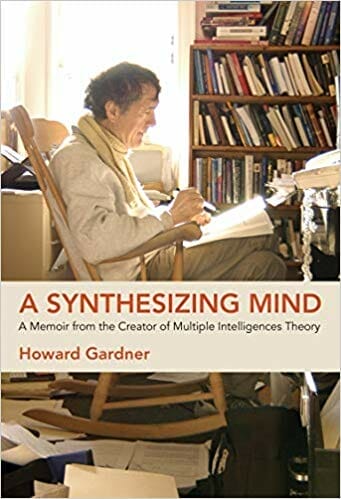
A Synthesizing Mind: A Memoir from the Creator of Multiple Intelligences Theory
(MIT Press, September 2020)

The App Generation: How Today's Youth Navigate Identity, Intimacy, and Imagination in a Digital World
(Yale University Press, October 2013)

Truth, Beauty, and Goodness Reframed: Educating for the Virtues in the Age of Truthiness and Twitter
(Basic Books, April 2011)

Responsibility at Work: How Leading Professionals Act (or Don't Act) Responsibly
(Jossey-Bass, August 2007)

Five Minds for the Future (Leadership for the Common Good)
(Harvard Business Review Press, April 2007)

Changing Minds: The Art and Science of Changing Our Own and Other Peoples Minds (Leadership for the Common Good)
(Harvard Business Review Press, September 2006)

The Disciplined Mind: Beyond Facts and Standardized Tests, the K-12 Education that Every Child Deserves
(Penguin Books, September 2000)
“This provocative book explores the views of thousands of students and other campus personnel. Finding many students alienated and narrowly focused on grades and resumes, the authors call for a renewed emphasis on the larger intellectual and social purposes of college.”
“In this bold and visionary book, Fischman and Gardner offer transformational solutions to the grave problems facing higher education today. The book’s compelling recommendations are supported by their definitive study of contemporary college life.”
“Based on extensive field work and thoughtful analysis, ‘The Real World of College’ offers an exceptionally valuable account of liberal arts education in the US today. There are some surprises in these findings, and much to ponder in the recommendations.”
“An insightful memoir from an eminent psychologist.”
“In a world where brains and neurons have too readily been exploited as explanations for human behavior, Howard Gardner’s much awaited memoir takes us in a different direction: into the life of the mind. More impressively still, this deeply reflective text opens up to every reader’s inspection the extraordinary mind in the life of one of the greatest and most frequently cited intellectuals of modern times.”
“This is a personal yet objective account of the evolution of a peerless scholar. Howard’s reflective storytelling and his insightful narration of the events that shaped him are a joy to read, giving us an intimate insight into how multiple, often seemingly disparate threads intertwine to shape an exceptional mind.”
“It’s been quipped that theories in psychology are true of those who propose them, and that’s certainly the case with Howard Gardner: creative, openminded, artful, disciplined, and in command of multiple intelligences. It’s a cause for celebration that one of our most influential living psychologists has trained his insight onto his own life and work.”
“Read this book for Gardner’s self-reflection — a mind that synthesizes ideas writing about how it came to be a mind that synthesizes ideas — and for what he has to say about the changing academic and intellectual world around him. Are we narrowing our focus when we most need open minds?”
“Howard Gardner has done what scholars dream of doing but rarely accomplish: he had a powerfully original idea which he developed in a way that changed an entire field, reaching well beyond the academy and affecting our nation’s social policy and collective understanding. ‘A Synthesizing Mind’ is an illuminating account of how such a breakthrough came about, a thick description of the life trajectory and the intellectual formation that led to this enduring achievement.”
